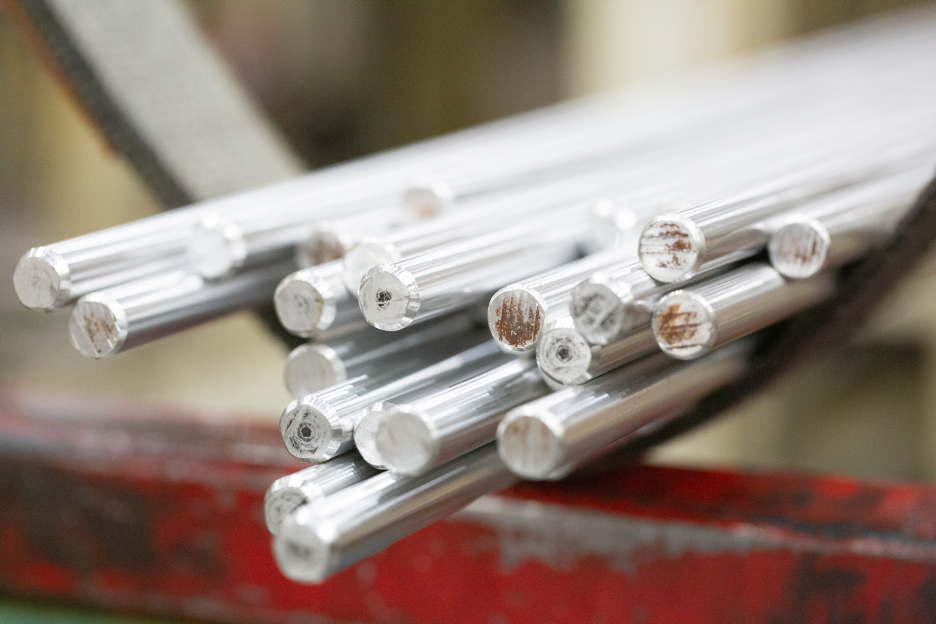Steel and titanium are two of the most commonly used metals across various industries today. Each has its unique properties and advantages, making them suitable for different applications.
Not sure which material is right for your project? To help you decide, this titanium ground bar supplier in Oklahoma City, Oklahoma is going to compare the two options below, exploring their properties, strength, and weight.
Properties of Titanium
Titanium is a remarkable metal that boasts an exceptional strength-to-weight ratio, making it highly desirable for manufacturers across various industries. One of the most notable properties of titanium is its incredible strength, which surpasses that of many other metals.
It has a tensile strength of up to 63,000 psi, which is almost twice as strong as steel. This property makes titanium ideal for applications that require high strength and durability.
Apart from its strength, titanium also exhibits excellent corrosion resistance. It forms a protective oxide layer on its surface, which prevents it from reacting with the surrounding environment. This characteristic makes titanium highly resistant to corrosion, even in saltwater or acidic environments. As a result, titanium is commonly used in marine applications, aerospace industry, and medical implants.
Furthermore, titanium is known for its biocompatibility, meaning it reacts well with biological tissues. This property makes it an excellent choice for medical implants, such as hip replacements and dental implants. Titanium’s biocompatibility, strength, and corrosion resistance are all major reasons why medical manufacturers have formed strategic relationships with titanium ground bar suppliers in Oklahoma City, Oklahoma over the years.
Properties of Steel
Steel, on the other hand, is an alloy that is composed primarily of iron and carbon, with the addition of other elements to enhance its properties.
One of the key advantages of steel is its exceptional strength. Although it’s not as strong as titanium, steel is still a powerhouse with a tensile strength of up to 50,000 psi. Its high strength makes it suitable for load-bearing structures, such as bridges, buildings, and automotive components.
In addition to its strength, steel is highly versatile and can be easily manipulated to meet specific requirements. It can be forged, rolled, or heat-treated to enhance its properties, such as hardness, toughness, and ductility. This versatility allows steel to be used in a wide range of applications — from construction to manufacturing and beyond.
Moreover, steel is known for its affordability compared to titanium. Steel is widely available and mass-produced, making it more cost-effective for many industries. This factor contributes to its popularity in various sectors, including construction, automotive, and consumer goods.
Strength Comparison Between Titanium and Steel
When it comes to strength, titanium and steel both exhibit impressive characteristics that make them suitable for demanding applications.
Titanium, with its higher tensile strength of up to 63,000 psi, outperforms steel in this aspect. This superior strength allows titanium to withstand heavy loads and extreme conditions, making it a popular choice in aerospace and military applications.
However, steel does possess remarkable strength. With a tensile strength of up to 50,000 psi, steel can handle substantial loads and provide structural integrity. It is widely used in the construction industry to build skyscrapers, bridges, and other load-bearing structures.
While titanium surpasses steel in terms of strength, both materials offer impressive strength characteristics that cater to different industry needs.
Weight Comparison Between Titanium and Steel
Weight is another crucial factor to consider, especially in industries where weight reduction is a priority.
Titanium shines in this aspect due to its exceptional strength-to-weight ratio. It is approximately 45% lighter than steel, making it an ideal choice for applications where weight savings are crucial. In the aerospace industry, for example, manufacturers often source their components from titanium ground bar suppliers in Oklahoma City, Oklahoma to reduce fuel consumption and increases aircraft performance.
Steel, while heavier than titanium, still offers an excellent strength-to-weight ratio. It is denser than titanium, but its strength compensates for the weight difference. Steel’s weight advantage lies in its affordability, making it a practical choice in applications where weight is not the primary concern.
Looking for a Titanium Ground Bar Supplier in Oklahoma City, Oklahoma?
Are you ready to take advantage of titanium’s unique characteristics? If so, and if you’re ready to partner with the best titanium ground bar supplier in Oklahoma City, Oklahoma, Iook no further than Supra Alloys.
With our extensive experience and expertise in the industry, Supra Alloys is your go-to source for high-quality titanium products. We offer a wide range of titanium alloys in various forms, including ground bars, sheets, and tubes, to meet your specific requirements. Contact us today at 1-888-647-8772 to request a quote.


